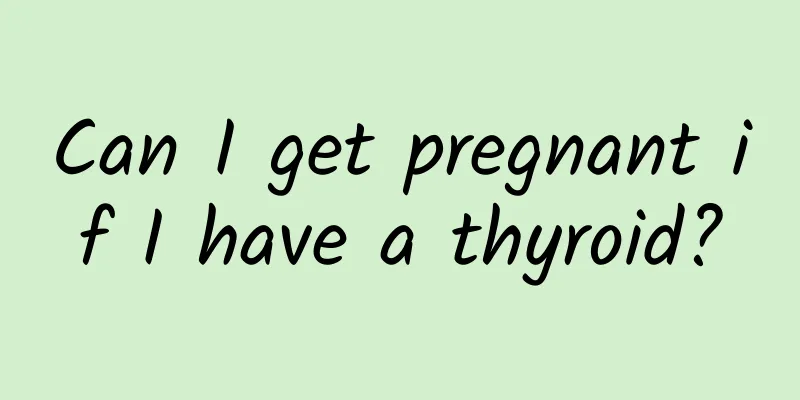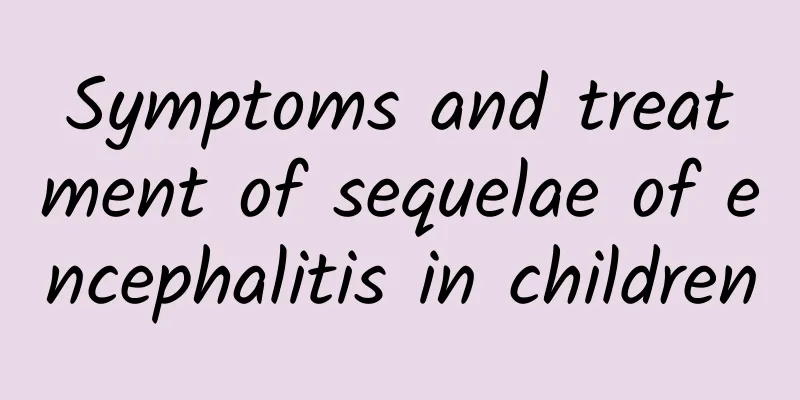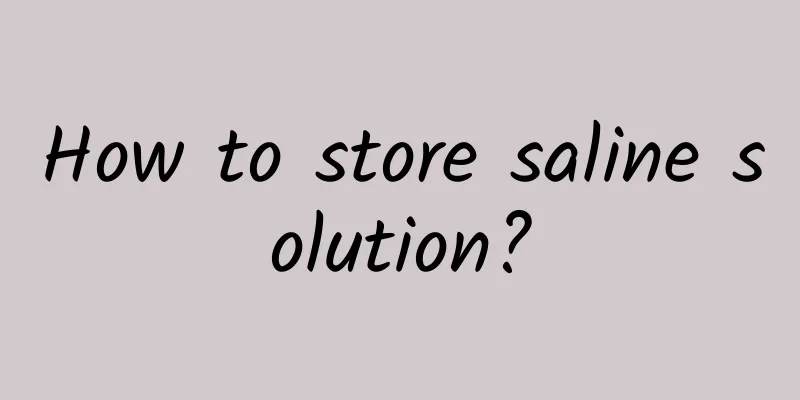Precautions after appendectomy

|
When appendicitis is severe and drug treatment is no longer effective, the best way is surgical removal, which is also a permanent solution. But what are the precautions after appendectomy? Diet, rest, medication and other aspects are all things that need attention. You cannot eat immediately after the operation, and can only eat some liquid food after one to two days. If you have abdominal distension but no bowel movement, you can choose to use medicine to defecate. First: Pre-operative preparation for appendectomy 1. Follow the same general preparation routine as before surgery, and avoid enema. 2. Patients with appendicitis perforation and peritonitis should be treated as acute peritonitis. Second: Anesthesia requirements for appendectomy Epidural or subarachnoid anesthesia is generally used, and it can also be performed under local anesthesia. Children should use general anesthesia or basic anesthesia plus local anesthesia. Third: Precautions during appendectomy 1. When looking for the appendix, you should first find the cecum, and then go down along the colon to find the appendix. 2. Before treating the appendix, you should pay attention to protecting the incision. Hemostasis of all layers of the abdominal wall should be thorough. 3. When ligating the mesoappendix, do not include too much tissue to prevent the ligature from slipping and causing secondary bleeding. Usually, a penetrating suture is used. Use thick silk thread to ligate the appendix stump and use thin silk thread to make a purse-string suture. Before closing the abdomen, the mesoappendix should be carefully checked for bleeding and for foreign objects in the abdominal cavity. After the peritoneum was sutured, the abdominal wall incision was flushed with normal saline. 4. If the appendix is found to be normal in appearance or inconsistent with the clinical manifestations during surgery, the terminal ileum, cecum and colon should be checked for diverticula, localized enteritis, tumors, inflammation of the small intestinal mesenteric lymph nodes, and lesions in the right fallopian tube and ovary. If no abnormality is found, the possibility of ulcer perforation, acute cholecystitis, etc. should be considered and further exploration should be performed to avoid missing the diagnosis. 5. When there is pus in the abdominal cavity, it should be washed and sucked out, and a cigarette should be placed for drainage if necessary. After suturing the peritoneum, the abdominal wall incision was flushed. Place a latex sheet in the incision for drainage or delay suturing. If the appendix cannot be removed, a cigarette or double cannula should be placed in the abdominal cavity for drainage. Fourth, precautions for postoperative treatment of appendectomy 1. Generally, the patient can eat non-milk liquid food on the 1st to 2nd day after surgery, semi-liquid food on the 2nd to 3rd day, and normal food on the 4th day. 2. For patients with abdominal distension, anal tube venting or acupuncture of Zusanli, Tianshu and other acupoints should be used. On the 3rd day after surgery, if necessary, 1 to 2 suppositories can be used for anal insertion. 3. The abdominal wall incision drainage is generally removed 24 to 48 hours after surgery. 4. Treatment after incision and drainage of appendectomy abscess: ① Sloping supine position; ② For severe cases of appendicitis, such as appendicitis perforation and peritonitis, antibiotics should be used until the body temperature and white blood cell count drop to normal range; ③ The cigarette drainage should be gradually removed after 3 days, and the drainage material should be replaced if necessary; ④ Always pay attention to the presence of subdiaphragmatic or pelvic abscesses, as well as signs of portal vein system infection. X-ray fluoroscopy and rectal examination can be performed if necessary; ⑤ Consider appendectomy after the wound has healed for 3 months. Fifth, key points for nursing care of patients after appendectomy 1. Same as general nursing routine of surgery. No food is allowed unless otherwise advised by a doctor. 2. If symptoms worsen during non-surgical treatment, the attending physician should be notified promptly. 3. Encourage patients to get out of bed and move around early after surgery. 4. For patients with appendicitis perforation and peritonitis, pay attention to the stool condition and whether there is pelvic abscess. The above are some things we should pay attention to during appendectomy surgery. Many times, our treatment is not so effective due to some problems in the details. Therefore, in daily life, everyone should learn more about appendicitis surgery. |
>>: Normal appendix size under B-ultrasound
Recommend
The best Chinese medicine for treating stubborn insomnia
Insomnia is a very common phenomenon in life. Man...
How long does it take for the puncture to produce results?
There are many surgical methods for puncture, inc...
Vaginal pain after childbirth
There are two ways of giving birth for pregnant w...
Can I use moxibustion for lower back pain?
Moxibustion is a treasure of traditional Chinese ...
Will high blood viscosity cause dizziness?
Blood viscosity generally refers to the degree of...
What should I do if body odor gets worse during pregnancy?
During pregnancy, a woman's body metabolism i...
Put toothpaste on your nose
Girls who love beauty don’t want to have a black ...
What to do if your eyes hurt due to electric shock
When people are welding, the arc light generated ...
What Chinese medicine is best for pancreatitis?
In the case of acute pancreatitis, the patient wi...
What are the symptoms of uncooked beans poisoning?
Some netizens asked if beans are poisonous if the...
Treatment of neuropathic migraine
Headaches are very common and many people have th...
The dangers of growing strawberries on your neck
The danger of planting strawberries on the neck i...
What is cervical ulcer?
When it comes to ulcers, everyone knows that it i...
Scalp scratches always cause scars
My scalp is itchy and I always want to scratch it...
Why do I feel dry mouth no matter how much water I drink?
Many people find that no matter how much water th...









